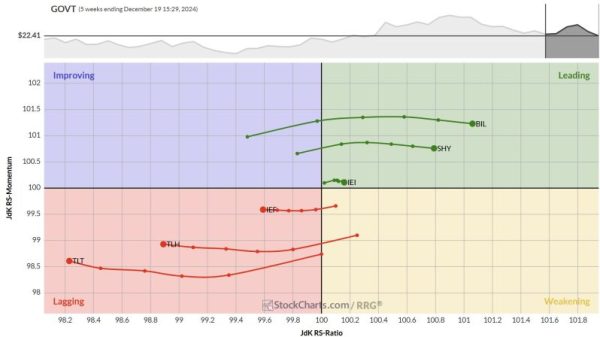Weight loss drugs such as Wegovy and Ozempic have been hailed worldwide as revolutionary for medicine. In the United Kingdom, the government is hoping they might also improve public finances, eyeing their use to help unemployed people re-enter the workforce and ultimately save money on health care.
“For many people, these weight-loss jabs will be life-changing, help them get back to work, and ease the demands on our NHS [National Health Service],” British Health Secretary Wes Streeting wrote recently in The Telegraph newspaper.
Streeting added that obesity is “placing significant burden on our health service,” costing the NHS £11 billion ($14 billion) annually and leading people to take an average of four more sick days each year, which hurts the economy.
To counter that, the government is funding a five-year trial of the weight loss drug Mounjaro, or tirzepatide, in conjunction with the drug manufacturer Eli Lilly, which will collect data on participants’ quality of life and changes to their employment status and sick day use.
But the proposals have sparked backlash from healthcare professionals, who say that new pharmaceutical treatments have resulted in massive demand that the country’s public health system can’t cope with.
Additional measures to prevent obesity in the first place are desperately needed, health experts say.
Fierce debate on obesity solutions
There’s no question about the issue of obesity in the UK – at least 29% of adults in England are obese, as are 15% of children between the ages of 2 and 15, according to the latest Health Survey for England, which used 2022 data.
Obesity is the second most common cause of preventable death in England, after smoking, according to government health data. It’s also a risk factor for type 2 diabetes, cardiovascular disease, dementia, liver disease and several cancers.
British Prime Minister Keir Starmer has said that his government needs to “think differently” about how to reduce pressure on the country’s national health care system, overburdened amid staffing shortages and funding pressures. Part of that new thinking is exploring weight loss drugs.
Yet obesity experts and healthcare professionals say that because the health system is already overloaded, drugs are hard to administer at scale and solutions need to go much deeper.
“The idea that this is the solution to obesity is a complete fantasy. We still need to prevent as many cases as possible,” said Alfred Slade, government affairs lead at the Obesity Health Alliance, a coalition of organizations that work together to reduce the condition across the UK.
The OHA has crunched the numbers on existing weight loss drugs like Wegovy, the brand name for the appetite suppressant semaglutide. The conclusion? It’s nearly impossible to make it widely available.
Currently, about 4.1 million people living with excess weight meet the criteria to get Wegovy through England’s national healthcare system. But fewer than 50,000 people per year will actually receive the treatment due to underfunding for NHS services and staffing levels, even with additional financing in the coming years, according to the alliance, citing NHS estimates.
To improve access, the government is also expanding the use of the drug Mounjaro, or tirzepatide, for obesity patients in addition to Type 2 diabetes patients. The health ministry claims that up to 250,000 people with the greatest need could receive it over the next three years.
The alliance says it’s not clear how the government will pay for the drugs, or how it plans to fund “wraparound support” that is essential alongside these prescriptions, such as dietary advice and physical activity support to ensure patients don’t lose muscle mass as well as fat.
The government trial studying links between weight loss drugs and employment is also raising alarm bells among healthcare experts, who argue that medical need should always be the driving factor behind prescriptions.
“Obesity management services should be available to all who could benefit but where prioritization has to be made, this must be done based on clinical need not the potential economic output of the patient,” wrote Jack Doughty, a senior policy officer at Diabetes UK, in a blog post.
The UK’s health ministry has been clear that the NHS will continue to treat people based on clinical need and not prioritize those who are unemployed.
Early prevention translates to ‘huge’ cost savings
A key issue with weight loss drugs is that they are “dealing with the symptom, not the cause” of obesity, according to Martin White, professor of population health research at the University of Cambridge. Experts argue you need to tackle both.
“It’s a whole population problem, not a small number of individuals,” White said. “We have to work out ways to change the context or the environment that is leading people to eat that many excess calories.”
One way is to implement stronger taxes on unhealthy products.
For example, the UK’s tax on sugary soft drinks has already resulted in manufacturers reducing the amount of sugar in sodas, and studies indicate that price increases are deterring some consumers. There are growing calls to tax food products with sugar and salt in a similar way.
Experts are also calling for stronger marketing regulations to prevent unhealthy foods from being advertised to children. In October 2025, a watershed law that prevents junk food advertising before 9 p.m. on TV, streaming services and online will come into force in the UK.
Another policy solution is to require healthier food to be served in public-sector facilities, like schools, hospitals and prisons. White said that kind of intervention could also be applied to the private sector, if offices and corporate caterers are required to serve healthier food.
In schools, experts say there are also problems with implementing the existing regulations for healthy food, which is another area that could benefit from more oversight and investment. For example, one government report has called for more funding to widen access to free and nutritious school meals.
“Increasingly, what we’ve seen is that kids are starting to put on weight from a very early age,” White added. “But if you can prevent it really early, then the cost savings in terms of health care become huge.”
Of course, changing an entire food system is harder than prescribing a drug. But tackling an obesity problem that impacts roughly one-third of British adults will require multiple solutions, across all sectors of society.
“There is no such thing as a silver bullet for obesity,” the Obesity Health Alliance emphasized.



























